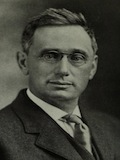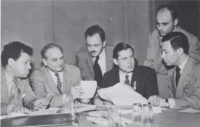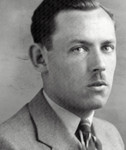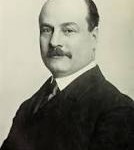Supreme Court Justice and American Zionist leader Louis D. Brandeis (1856-1941) tried but failed to persuade President Franklin D. Roosevelt to take a greater interest in the plight of German Jews in the 1930s.
Brandeis recognized early on the grave danger that the Nazis posed to the future of German Jewry. Just eight days after Adolf Hitler’s rise to power, he told American Jewish leader Rabbi Stephen S. Wise that “the Jews must leave Germany.”
Brandeis enjoyed a close relationship with the president, providing him with helpful advice on various New Deal initiatives. FDR affectionately called the justice “Old Isaiah.” But Brandeis’s influence on the president did not extend to Jewish concerns. In a meeting with Secretary of State Cordell Hull in May 1933, Brandeis argued that FDR should issue a statement openly and forcefully denouncing Hitler’s persecution of German Jewry, “the kind [of statement] W.W. [Woodrow Wilson] would have made.” Brandeis also told Hull that FDR should go beyond rhetoric and open the country’s doors to the downtrodden Jews. He noted with dissatisfaction the sharp contrast between Roosevelt’s restrictionist immigration policy and what he called America’s “nobler past” of welcoming the persecuted.
Justice Brandeis went so far as to say that he was “ashamed” of the administration’s refugee immigration policy, indeed that he “felt more ashamed of [his] country than pained by Jewish suffering.” But Brandeis’s appeal had no impact. “FDR has not lifted a finger on behalf of the Jews of Germany,” Rabbi Wise wrote to a colleague two months later. “We have had nothing but indifference and unconcern up to this time.”
Alerted in the spring of 1939 that the British intended to issue a White Paper restricting Jewish immigration to Palestine, Brandeis attempted to convince President Roosevelt to intervene. In a handwritten note, Brandeis pleaded with Roosevelt to “induce the British to postpone the threatened announcement.” Two weeks passed; there was no reply. An exasperated Brandeis asked if the president could at least spare “a few minutes” to meet with a Zionist representative. White House aide Stephen Early broached the request with the president, and then jotted down FDR’s curt response: “Can’t see him–Sec. State is all that is possible.”
In these circumstances, Brandeis privately endorsed the ‘aliyah bet’ campaign to smuggle Jews from Europe into Palestine in defiance of the British authorities. In a letter to his American Zionist colleague Robert Szold on May 23, 1939, Brandeis wrote: “The landing of the 308 ‘illegal’ immigrants was a dramatic event, coming at this time.” Brandeis’s use of quotation marks around the word “illegal” hinted that he did not regard them as illegal.
Yitshaq Ben-Ami, a Bergson Group leader who had been involved with ‘aliyah bet,’ reported in his 1981 memoir that Brandeis, in a meeting with an aliyah bet activist in early 1939 had remarked, “If I were a young man like you, I would be with you.”
Brandeis discussed the issue at a private meeting in his home with six veteran American Zionist activists on July 31, 1939. An account of the meeting prepared by Isadore Breslau, the American Zionist movement’s chief representative in Washington reported: “Speaking on the question of immigration [Brandeis] said that Jews would continue to immigrate regardless of the White Paper. When someone suggested that it was illegal, he said that the Jewish people considered it legal in view of the fact that any attempt to curtail immigration was in violation of the terms of the Mandate; that it may be considered illegal by Great Britain but that we Jews considered it to be legal.”
Sources: Shogan, Prelude to Catastrophe, pp. 74-76;
Urofsky, A Voice That Spoke for Justice, pp.264, 269;
Medoff, Militant Zionism in America, p.37;
Penkower, The Swastika’s Darkening Shadow, p.17.











